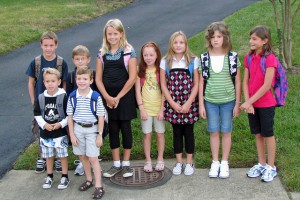We are afraid of things that we don’t know.
When I was a young, fresh faced, college grad, I applied to do two years of Peace Corps service. I figured this would be a way to really use my French language skills, have a grand adventure and get some work/life experience. I was accepted, got a country assignment (Mali, West Africa) and the adventure began! I did a three month training program where we learned cross cultural communication, sustainable development theory and took local language classes.
I was dropped off in my remote village that was not accessible by any road, into my hut made of mud and a thatched roof. My light was a lantern, my water I pumped from a community well and “wifi” hadn’t been invented. I was there without a single piece of emergency medical equipment since my medical kit had fallen out of the back of the car delivering me to the village. I had a bike to get me to the nearest town for mail or bread or a market, 25 miles away. I was supposed to “work” with the people of the village on “projects” that we developed together. Grassroots community building work is purposefully and decidedly ambiguous.
“The real person smiles in trouble, gathers strength from distress, and grows brave by reflection.”
– Thomas Paine
I was (though loath to admit it) terrified, ignorant and lacking skills. I decided to keep a journal to reflect on my experience. It turns out that decision was one of the best decisions I ever made, because the reflection made me less terrified, less ignorant. The reflection as an act, as a process, helped me overcome my fear.
Starting To Teach In A 1:1 Digital Environment
The sentiment was much the same as I was on the start of my first year of teaching in a 1:1 digital environment with a new Moodle course that used Open Educational Resources to meet the new state standards for social studies. I helped write the course, but it had never been done, never been vetted, never been tested. I was only SLIGHTLY less terrified than when I was that fresh faced Peace Corps volunteer. So, I decided I would take the same approach to the process, and start a blog (new medium, same concept) for reflective practice.
“We can’t be creative if we refuse to be confused. Change always starts with confusion, cherished interpretations must dissolve to make way for the new. Of course it’s scary to give up what we know, but the abyss is where newness lives. Great ideas and inventions miraculously appear in the space of not knowing. If we can move through the fear and enter the abyss, we are rewarded greatly. We rediscover we’re creative.”
– Turning To One Another, by Margaret Wheatley
The Change Starts With The Shift In The Mindset
And here is where it got really awesome! Once I let go of the fear, and decided to be curious, I discovered the creativity! I turned to my colleagues. I turned to Twitter for developing a Professional Learning Network and for curating interesting reads about what was awesome in #edtech. I was becoming creative about teaching and learning with a digital tool to facilitate the process.
Once I started thinking about how “I” would be creative in teaching, my thinking shifted AGAIN. I started thinking about how my students could engage their creativity. I started asking questions of curiosity like, “What are ways that they can generate new and creative ways of thinking, products or ways of viewing things? How can they plan, design, produce or invent a representation of their learning using the digital device?”
We started with theme one at a time, and gradually increased our repertoire of learning activities. So, instead of “anchoring activities” for differentiation, I started thinking of ways to provide opportunities for “anchoring creativity.”
Curiosity Is The Best Way To Replace Technophobia
What I really learned was that the fear, real and relevant, can paralyze a person. But, the act of reflecting on the process, on the fear, can help move us toward creativity. As a teacher, if I reflect on the fear, I can turn the fear into something more manageable; I can make my fear curiosity. When I am curious, I am not afraid of the failure, of the difficulty. I am only curious as to how it went wrong or where to learn. When I am curious, and reflective, I learn, I grow, I embrace.
By Lynnea West
About the author:
Lynnea West is an i-Learn Coordinator in Eden Prairie Schools where she works on a team who supports 600 teachers EC-12th grade. Lynnea is also enrolled in the PhD program at the University of Minnesota in the College of Education and Human Development, Learning Technologies department. Follow Lynnea on Twitter or connect on LinkedIn.
//
Image credits: Kevin Dooley / CC BY 2.0
